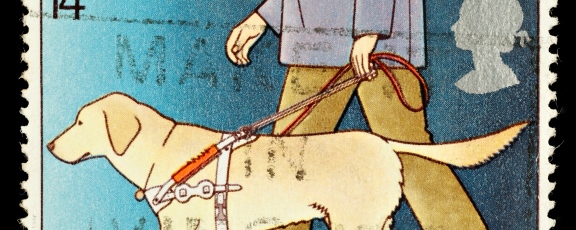
- Published: 11 September 2014
Nothing arouses my senses quite like a new city. In major metropolitan centers, there are a multitude of things that scream out, “Here! Come here. We’ve got something fascinating in store for you.”
A street full of manic traffic informs me it’s a major thoroughfare and I should use it to navigate this new domain.
The smell of coffee whispers, “We can awaken your brain with a delicious cup of brew.”
The distinct scent of certain chemicals gently reminds me I’m due for my bi-weekly haircut.
And, once night descends, the laughter and music radiating from doorways is an open invitation to go dance the night away in a club. Walking back to my hotel, I know my face will soon be hitting the pillow when I smell the pizzeria right next door.
Traveling My Way
A warm rush of elation washed over me as I arrived at LaGuardia airport. I’d been away from New York for a while and was looking forward to reconnecting with this most vibrant of cities. An airport employee soon greeted me and inquired about my book tour as he led me to a cab. The vehicle pulled up two feet away from the employee, and I was escorted to the door when suddenly, a man shouted in broken English, “No dogs allowed!”
He was, of course, referring to my guide dog, Madge. And so began another epic struggle for my pre-existing rights as a traveling blind man. The airport employee and I explained that my yellow lab was a service dog. The cabbie continued to deny me service. Another employee piped up in my defense and — perhaps a little too loudly — explained to the driver that he was breaking the law. I whipped out my cell phone and warned the driver I would report him. Finally, a third employee joined in the ruckus, insisting that Madge was not merely a pet. With four people angrily indicting the cabbie, he finally caved, and Madge and I were allowed to board the cab — albeit beneath a flurry of angry mutters.
The tense and silent ride that followed represents many frustrating moments I have experienced while traveling in both the U.S. and abroad. Even though I am protected by the Americans with Disabilities Act (ADA) — and by similar regulations in other countries — I am constantly reminded of just how unfamiliar ticket agents, flight attendants, hotel staff, and transportation companies are with the law. What’s more, they often seem to lack training in dealing with disabled patrons.
I was not born without sight. My vision loss was the result of a brutal attack that occurred in San Francisco six years ago. The point being that I know what it’s like to travel as a sighted person. It was a shock when I went from being greeted politely by members of the travel industry to having to instruct airport and hotel staff exactly how they should deal with me. Sometimes, it only takes the person a few simple instructions to help me with a task. Other times I run into a situation where I’m denied service and actually asked to leave an establishment. So, you can see, even though there are laws in place to protect and assist me, they aren’t always universally applied.
After losing my sight, the mere thought of depending solely on my senses of smell and hearing to get around made me anxious. Eventually, I came to the conclusion that while my attackers may have robbed me of my sight, I’d be damned if they were going to take away my love of travel. I adapted accordingly. I now travel internationally and can honestly say I feel more connected to my environment than when I could see.
As I alluded to earlier, there are all sorts of sights and sounds — especially in a city — that really help me place where I’m at. Once I get a whiff of hot coffee, for example, I tell Madge to find the door. We end up in a coffee shop where I can ask people for directions or use the Internet. People’s footsteps let me know where there are sidewalks and stairs.
Whether we’re relying on sounds or smells, finding a location with Madge and my GPS is a fun game, and making mistakes helps me learn a place better, just as it would a sighted person. If discovering new places was thrilling back when I was sighted, it’s absolutely intoxicating now that I’m blind.
A Unique Set of Problems
Still, every traveler has a host of challenges waiting for him along the way, and it’s no different for blind people. The challenges we face, however, tend to be different than those of the average sighted traveler. I would say that there are three main problems I encounter while traveling.
The first problem centers on my guide dog. Traveling with a guide dog really amps up your speed. In my experience, cane versus canine boils down to riding a tricycle underwater versus driving a Harley Davidson gifted with an exceptional sense of orientation.
I make sure to only travel to countries that have some type of access law for service dogs, yet some people still ignore the law and refuse to let me in. Sometimes this is dependent upon how the culture of the country I’m in views dogs. In the Czech Republic, for example, a service dog would be heartily welcomed. Many restaurants even have a communal water dish for canines accompanying their human patrons. However, if I were in India, with its abundance of mangy street dogs and lack of a strong dogs-as-pets culture, Madge would likely be canis non grata.
The second problem I often encounter makes me want to scream, “Who moved my cheese!?” I always explain to the hotel’s cleaning crew how imperative it is that they never move my things. Unfortunately, in many cases they do. When this happens I have to call the front desk to send someone up to help me find what I’m looking for. Granted, this is a big, preventable waste of everyone’s time.
The third problem is entrance. I’m not talking getting on buses or subways; the whoosh of the automatic door shows me where to go in. But rather being denied entrance. Even without Madge, some places of business have refused me entry simply because I was blind and unaccompanied. They viewed me as a liability, thinking I would get hurt without the help of a sighted person.
I’ve also found that certain cultures view blind people as bad luck. They feel that the blind person lost his sight because of bad karma, and they prefer to keep their distance. On the other hand, there are certain cultures who revere the blind. This is definitely something I consider when choosing what country or city to visit.
Training the Travel Industry, Along With Everyone Else
Up until this point I’ve been a pretty “negative Ned,” but I really wanted to drive home some of the problems before I present possible solutions. Like most problems, if we work together, we can make traveling easier on everyone.
I definitely think the travel industry would benefit from some corporate initiatives. You know, actually enforcing disability etiquette training for its employees. This is especially important in places like the U.S. and Europe, where it is already part of the law. Not only would this help travelers with disabilities, it would also promote a greater understanding to the public at large by busting certain stereotypes about the disabled.
When it comes to hotels, front desk staff should be trained to ask patrons who are blind what specifically they can do to make the their stay as comfortable as possible — no two person’s needs are alike.
Travelers who are blind can help by always having a copy of the part of the ADA that details the guide dog section. If traveling to Europe, make sure to have a copy of the corresponding EU law written in the language of the country of destination. I also always call ahead to hotels and airlines to let them know I’ll be arriving with a guide dog. Even though I write my specifications when I make my reservations, these don’t always get read, and I find people usually appreciate a kind heads-up.
It’s also important for the average Joe to know what they can do to help out a traveler who is blind. A blind person should always be asked if they’d like help before a stranger jumps into an advocacy role. My situation with the angry cabbie in New York is slightly different; the airport employees were on duty, and it is their job to help customers.
Increased Global Mobility
Traveling is no longer an exclusive luxury. Even the blind can go online and score a great travel deal. The travel industry has seen a significant increase of blind travelers, and the numbers will only get bigger. Travel companies should take heed, lest the frequent neglect of our ADA rights turn into a legal nightmare.
Many people who are blind are ready and willing to experience what international travel has to offer our senses. Dr. John Prescott, a musicologist and lecturer at University of California, Berkeley, was born blind and has traveled internationally all his life. Despite all of my griping, he insists that the travel industry has gone through a slew of positive changes in the past decades, and I believe him. For example, when he studied abroad in England in the late ‘80s, he had to quarantine his guide dog for six months. These days, according to Guide Dogs UK, the quarantine has largely been abolished.
Diana Saint James is the owner of Dimensions in Travel and has personally seen the increase in blind travelers. Her travel agency has created various vacation packages for blind people and their guide dogs. In fact, Dimensions in Travel has done 13 guide dog cruises since 2004. Efforts like these help spur the travel industry into making changes in accessibility.
If nothing else, it would greatly behoove industry leaders to realize that the millions of blind people around the world comprise a very viable market; after all, they have to travel for college, weddings, and other practical reasons — just like the next person. I firmly believe that much of the ignorance can be eliminated via education and training, ensuring that everyone’s trip is memorable for the right reasons.
Belo Cipriani is the Writer-in-Residence at Holy Names University, a spokesperson for Guide Dogs for the Blind, the "Get to Work" columnist for SFGate.com, and the author of Blind: A Memoir. You are invited to connect with him on Facebook, Twitter, Google+ and YouTube.


